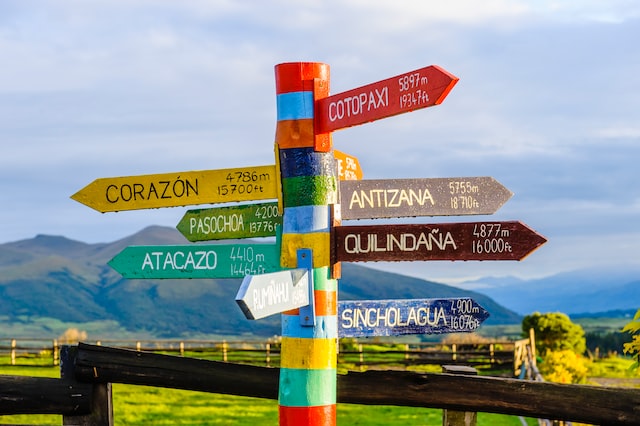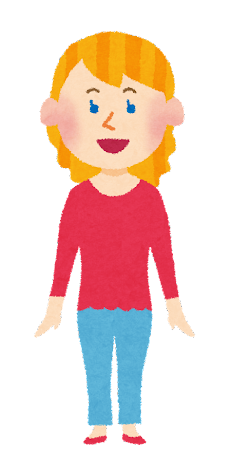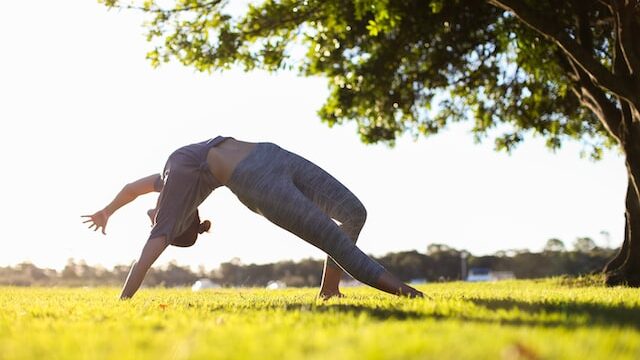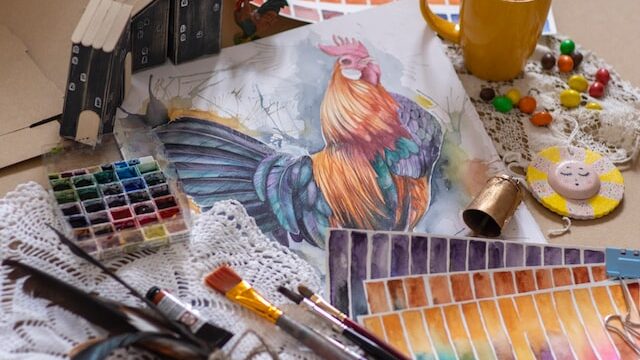ライフハックとしてではなく、英語学習にも極めて有用なのが、著名人が10分程度のプレゼンを行うTEDです。
TED Talksとは、あらゆる分野のエキスパートたちによるプレゼンテーションを無料で視聴できる動画配信サービスのことです。10年ほど前にサービスが開始されてから、政治、心理学、経済、日常生活などの幅広いコンテンツが視聴できることから人気を集めています。
RareJob English Lab
TEDは4000を超える膨大な数の動画があります。しかし慣れないうちは、動画の探し方や視聴のコツが分かりませんよね。この記事では、数多くのTEDを見てきた管理人(塩@saltandshio)が、心を揺さぶられたトークをあらすじと一緒にご紹介します。
ビジネス英会話を効率よく身につけたい方におすすめスクール
シェーン英会話
シェーンは1977年の創業以来、ネイティブ講師が英語を英語で教える「直接教授法」を採用しています。首都圏におけるスクール拠点数は、ネイティブ講師の英会話スクールでNo.1。駅から近いスクールが多いので通いやすく時間を有効に使えます。
スピークバディ パーソナルコーチング
1日1時間の短期集中トレーニングで、あなたの英語力向上をコーチが全力でサポートします。あなたの英語の世界が、劇的に変わります。
ナタリー・フラトー: 適応能力を測定する3つの方法とそれを向上させる方法
ベンチャー投資家のナタリー・フラトーは、スタートアップ企業の創業者の誰を支援するかを決める際、知能やカリスマ性だけでなく、適応能力にも注目しています。洞察力に満ちたトークでフラトーは、「適応指数」を判断する3つの方法をお話しし、変化に対応する能力がいかに大切か伝えます(約6分半)。
[PR] アパレル業界に特化した派遣・求人情報サイト♪【アパレル派遣なび】これからの時代に必要なのはIQやEQではなく適応指数(AQ)
ベンチャー投資家のナタリー・フラトーは、一年間で約300人ものスタートアップ企業の創業者に会っています。目的は、テック企業の投資家として誰を支援するかを決めるためです。
多くの人の中から、優れた人材に投資するため、彼女は素早く相手の潜在能力を見極めなければいけません。学歴や職歴、将来のビジョンや実際の頭の良さなど、人を見極めるためには多くの判断基準が必要となります。ほかのベンチャーキャピタリストは、おおむね創始者の感情指数(EQ)を評価します。IQで判断するベンチャーキャピタリストもいます。
しかし、ナタリー・フラトーの判断基準は違います。彼女は適応指数(AQ)を用いて、誰に投資するのか判断します。この適応指数(AQ)は、いま世界が大きく変わる中で、人を図る基準というだけではなく、私たち自身にも求められる能力といってよいでしょう。
実際に、ナタリー・フラトーは相手の備え持っているAQから投資するかどうかを決めています。彼女にとっての唯一最大の決め手がAQだからです。そんなAQですが、どのような評価基準で判断するのでしょうか。それは、3つの質問で測ることができるとナタリー・フラトーは言います。順番に見ていきましょう。
[PR]人事としてのキャリアアップ【人事プロパートナーズ】将来起こりうる未来を想定出来るか
私は「もしも~だったら」と質問するのが好きです
I like to ask “what if” questions.
通常の企業面接では、「~した時のことを教えてください」と聞かれることが多いですが、ナタリー・フラトーは将来起こりうる複数のシナリオに対して、相手がどのような決断をするのか見て判断します。
この質問は、相手に先見の明があるのか、明確なシナリオをいくつ挙げられるかなど多くのことがわかります。相手がいかに素早く目の前にある情報を理解することが出来て、制限された状況の中で目標達成が出来るのかがわかるのです。これは、IQやEQでは判断できない質問といってもよいでしょう。
ちなみに、このように未来をシミュレーションすることは、私たちが今からでも適応能力を向上させるためにできる訓練のひとつです。
[PR] 薬剤師に選ばれる転職サイト!薬剤師の転職&派遣ならファルマスタッフ固定観念を捨てられるか
2つ目は、いかに固定観念を捨てられるかどうかです。自分から固定観念を捨てられる人は、いま現在で常識といわれている知識に疑問を呈し、新しい情報を上書きすることができる人です。
もちろん、固定観念を捨てることは簡単に出来ることではありません。しかし、人間は訓練を続ければ、これまであたりまえだと思っていたことを変えることが出来ます。たとえば、右利きを左利きにかえるというのもそのひとつでしょう。
医者も認める左利きのすごさ! ⇒ 1万人の脳を見た名医が教える すごい左利き 「選ばれた才能」を120%活かす方法 [ 加藤俊徳 ]
ナタリー・フラトーも、「適応能力は不変ではない」と言います。そして、懸命に努力することによって、向上させることができる能力が適応能力なのです。
[PR]シッター常駐「子どもと一緒に通えるFammママwebデザイナースクール」過去の栄光を捨てられるか
3つ目の秘訣として、ナタリー・フラトーは創業者の適応能力を評価するために、人生と携わる事業にメスを入れている人々を探します。なぜなら、私たちは自分が勝ち得た成功を過大評価する傾向にあるからです。
例として、ナタリー・フラトーはブロックバスター社のCEOとネットフリックスのCEOの話をします。2000年にネットフリックスのCEOであるリード・ヘイスティングスは、ブロックバスター社のCEOであるジョン・アンティオコに、オンライン事業での提携を提案します。しかし、ジョン・アンティオコは会議室の外まで響く大声で笑い飛ばして、この提案を退けてしまいます。
10年後、ブロックバスター社は破産を申請しました。逆に、2018年にネットフリックスは約1兆7,000憶円の収益を上げています。両者の違いはなんだったのでしょうか。ブロックバスター社はなぜ破産したのでしょうか。その原因として、ナタリー・フラトーはこう語ります。
ブロックバスター社のCEOは、成功した自身のビジネスモデルの活用にあまりにも固執したため、次の手を見極めることができませんでした。
よって、過去の栄光が潜在的な適応能力の敵となったのです。
The Blockbuster CEO was too focused on exploiting his already successful business model, so much so that he couldn’t see around the next corner.
In that way, his previous success became the enemy of his adaptability potential.
誰しもが、輝いた過去の栄光は美しく見えます。しかし、これから必要とされる人材は飽くなき探求心を持ち続けている人です。自分の成功に酔いしれるのではなく、常に将来命取りとなる可能性があるものを、先見の明で探し続ける人といっていいでしょう。
成功に限らず受験も就職も結婚も、それぞれゴールテープを切ったら終わるものではないことを忘れてはいけません。

まとめ:適応能力は向上できる
トークのさいごに、ナタリー・フラトーは聴衆に向けて語り掛けます。
適応能力について調べ始めた頃、私が大興奮したのは適応能力は向上できることです。
私たち一人一人には、もっと適応できる能力があるのです。
When I first started exploring adaptability, the thing I found most exciting is that we can improve it.
Each of us has the capacity to become more adaptable.
適応能力はすぐには身につきません。筋トレのように、地道に訓練しなくては自分の血肉になりません。この言葉に残念がる人もいるでしょう。しかし誤解しないでいただきたいのは、適応能力は地道な訓練によって身に着けられる能力なのです。
ただ、自分に備わるまで時間がかかるというだけなのです。
もしあなたが適応能力を身に着けたいのであれば、(1)自分に「もしも~だったら」と質問し、(2)積極的に固定観念を捨てて、(3)さらに活用よりも探索を優先しましょう。そうすれば、私たちは仕事やプライベートで主導権を握ることができるようになります。
鍛えられた適応能力は、次に何か大きな変化があった時に必ず役に立ちます。なぜなら、変化に対する心構えがすでに出来ているからです。現状に満足することなく、小さな一歩でも先を見つめて歩いていきましょう。それが、私たちの未来を大きく輝かせることになるはずです。
英語全文
I met 273 start-up founders last year. And each one was looking for money. As a tech investor, my goal was to sort through everyone that I met and make a quick determination about which ones had the potential to make something really big.
<全文を読む>▼クリック▼
Other VCs asses a founder’s emotional quotient, or EQ. How well will this person build teams and build rapport across customers and clients?
I have a different methodology to assess start-up founders, though, and it’s not complicated. I look for signs of one specific trait. Not IQ, not EQ. It’s adaptability: how well a person reacts to the inevitability of change, and lots of it. That’s the single most important determinant for me. I subscribe to the belief that adaptability itself is a form of intelligence, and our adaptability quotient, or AQ, is something that can be measured, tested and improved.
AQ isn’t just useful for start-up founders, however. I think it’s increasingly important for all of us. Because the world is speeding up. We know that the rate of technological change is accelerating, which is forcing our brains to react. Whether you’re navigating changing job conditions brought on by automation, shifting geopolitics in a more globalized world, or simply changing family dynamics and personal relationships. Each of us, as individuals, groups, corporations and even governments are being forced to grapple with more change than ever before in human history.
So, how do we assess our adaptability? I use three tricks when meeting with founders. Here’s the first. Think back to your most recent job interview. What kind of questions were you asked? Probably some variation of, “Tell me about a time when,” right? Instead, to interview for adaptability, I like to ask “what if” questions. What if your main revenue stream were to dry up overnight? What if a heat wave prevented every single customer from being able to visit your store? Asking “what if,” instead of asking about the past, forces the brain to simulate. To picture multiple possible versions of the future. The strength of that vision, as well as how many distinct scenarios someone can conjure, tells me a lot.
Practicing simulations is a sort of safe testing ground for improving adaptability. Instead of testing how you take in and retain information, like an IQ test might, it tests how you manipulate information, given a constraint, in order to achieve a specific goal.
The second trick that I use to assess adaptability in founders is to look for signs of unlearning. Active unlearners seek to challenge what they presume to already know, and instead, override that data with new information. Kind of like a computer running a disk cleanup. Take the example of Destin Sandlin, who programed his bicycle to turn left when he steered it right and vice versa. He called this his Backwards Brain Bike, and it took him nearly eight months just to learn how to ride it kind of, sort of normally. The fact that Destin was able to unlearn his regular bike in favor of a new one, though, signals something awesome about our adaptability. It’s not fixed. Instead, each of us has the capacity to improve it, through dedication and hard work.
On the last page of Gandhi’s autobiography, he wrote, “I must reduce myself to zero.” At many points in his very full life, he was still seeking to return to a beginner’s mindset, to zero. To unlearn. In this way, I think it’s pretty safe to say Gandhi had a high AQ score.
The third and final trick that I use to assess a founder’s adaptability is to look for people who infuse exploration into their life and their business. There’s a sort of natural tension between exploration and exploitation. And collectively, all of us tend to overvalue exploitation. Here’s what I mean. In the year 2000, a man finagled his way into a meeting with John Antioco, the CEO of Blockbuster, and proposed a partnership to manage Blockbuster’s fledgling online business. The CEO John laughed him out of the room, saying, “I have millions of existing customers and thousands of successful retail stores. I really need to focus on the money.”
The other man in the meeting, however, turned out to be Reed Hastings, the CEO of Netflix. In 2018, Netflix brought in 15.8 billion dollars, while Blockbuster filed for bankruptcy in 2010, directly 10 years after that meeting. The Blockbuster CEO was too focused on exploiting his already successful business model, so much so that he couldn’t see around the next corner. In that way, his previous success became the enemy of his adaptability potential.
For the founders that I work with, I frame exploration as a state of constant seeking. To never fall too far in love with your wins but rather continue to proactively seek out what might kill you next. When I first started exploring adaptability, the thing I found most exciting is that we can improve it. Each of us has the capacity to become more adaptable. But think of it like a muscle: it’s got to be exercised. And don’t get discouraged if it takes a while. Remember Destin Sandlin? It took him eight months just to learn how to ride a bike.
Over time, using the tricks that I use on founders — asking “what if” questions, actively unlearning and prioritizing exploration over exploitation can put you in the driver’s seat — so that the next time something big changes, you’re already prepared.
We’re entering a future where IQ and EQ both matter way less than how fast you’re able to adapt. So I hope that these tools help you to raise your own AQ.
Thank you.
<閉じる>
\ ほかにも気になるトークが満載! /








